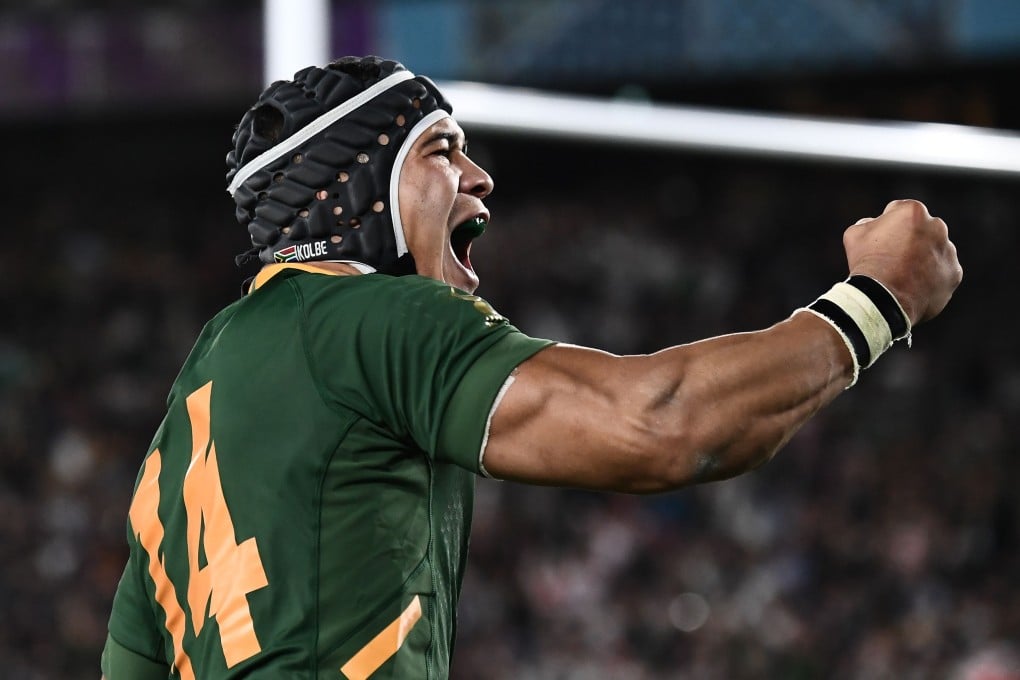Opinion | England caught in South Africa’s headlights during Rugby World Cup final
- The Springboks did everything right when it mattered, and an upstart English squad could not top their semi-final win against the All Blacks
- The better team on the day won as Eddie Jones could not orchestrate another upset for the ages

The game plans played out as winning head coach Rassie Erasmus imagined they ought to, trapping England in a nightmare of having played their final seven days early. They were left rubbing their eyes at full-time after the wake-up call of their lives. How, they were left asking, had this happened?
England taste their own medicine
It was there – or, for England, wasn’t there – from minute one. South Africa clicked on the ‘b’ of the bang, much as England did in dominating New Zealand in their semi-final. All that was right about England then was absent now: imposing their will, grabbing the initiative, zest of a box of frogs. Asked to repeat it with the weight of expectation, they were a bag of nerves.
As they tend to when England have their dark days, disciplinary demons surfaced early and stuck around. Jerome Garces, the referee, penalised Courtney Lawes at the breakdown in the first minute and 50 more elapsed before they were regularly on the right side of the law.
South Africa were not error-free, but England were all over the place. Billy Vunipola flung a panic ball on to his brother Mako rather than truck it up. Passes went behind intended targets. One lapse of sanity sent play the length of the English back line behind their own posts. Decoy runners got in the way of playmakers George Ford and Owen Farrell when they did opt for the safety of cleared lines.
Their counterpart Handre Pollard, observing this anxiety dream of a performance, was unforgiving. Eddie Jones, the England head coach, had named an unchanged starting XV for the first time in nearly four years. They were there to be shot at, and the hunters became the hunted.
